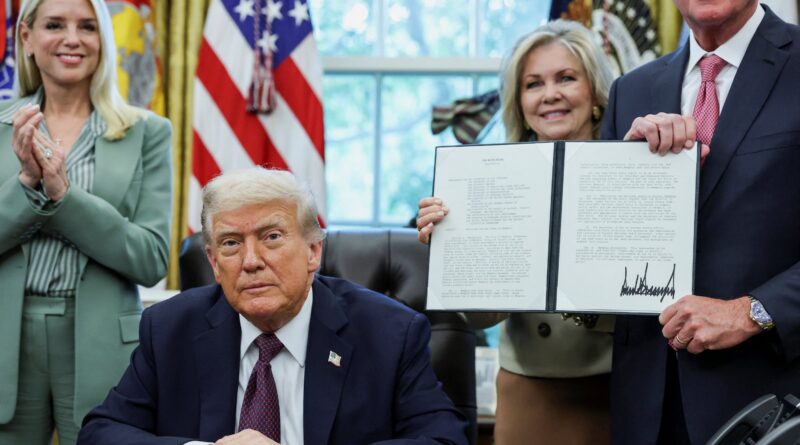National Guard on Way to Memphis for New Crime-Fighting Strategy
In recent weeks, there’s been growing anticipation in Memphis, Tennessee around the probable arrival of National Guard troops. This expectation arose after a revelation from President Donald Trump about his plans to mobilize them to the city. However, the specifics of this deployment strategy were unveiled recently, painting a distinct picture compared to the similar operations seen in places like Los Angeles and the capital, Washington, D.C.
As shared by Tennessee’s Governor Bill Lee, this new strategy aims to curb crime in the city. His approach envisages a powerful synergy involving National Guard troops, thirteen federal organizations, and state troopers. Notably, troops from the National Guard will be Tennesseans, empowered by the U.S. Marshals Service to aid the local law enforcement entities.
Governor Lee, a Republican, was clear that the troops will not be involved in arresting individuals, nor will they carry weaponry unless it’s required by the local law enforcement. Lee’s previous estimates suggest a troop deployment of approximately 150, but he noted that the final figure could change as strategies and plans evolve.
President Trump’s deployment of the National Guard to Memphis has sparked interest due to his description of it as a model for the strategies used in Washington. As for identifying the troops, they will be readily discernible in their everyday, standard uniforms. Importantly, they won’t be masked, and there’s a clear instruction against using armored tanks for this mission.
In a confident assertion, Governor Lee proclaimed that Memphis’s long-standing struggle with crime will soon turn into a legacy. His Memphis Safe Task Force, a central element of this endeavor, is set to commence work the following week despite the absence of a specific schedule regarding the phased deployment of each agency involved.
The governor did inform, however, that agents from significant organizations such as the FBI, Bureau of Alcohol, Tobacco, Firearms and Explosives, and the Drug Enforcement Agency are expected to land in Memphis shortly. While the severity of the situation could raise alarm bells, the governor has refrained from declaring a state of emergency as of yet.
Drawing attention back to Trump’s early June action against protests in Los Angeles, the troops initially deployed were subjected to federal jurisdiction for safeguarding federal assets. Their responsibilities later broadened to include assistance during arrests. However, Memphis’s case shows a divergence in attitudes and responses to such deployments.
In stark contrast to Trump’s approach, Mayor Paul Young of Memphis has elected to adopt a more realistic and contemplative stance. Though he didn’t personally request for National Guard troops, he seems to have accepted their eventual arrival irrespective of his personal views. His focus strategically shifts to ensuring the best utilization of resources to serve the local community optimally.
Contrary to public perception, crime rates in Memphis have trended downwards, but Mayor Young believes there’s still much room for progress. He’s committed to driving crime levels down even further until safety becomes a tangible reality for all city residents. Both Young and Lee maintain that the resource surge is not merely a temporary measure but a consistent and concerted effort.
According to Lee, the operation will persist for as long as it requires to ensure safety. ‘Success would mean Memphis being able to enjoy its status as a safe city, free of the anxieties that plague residents currently’, he opined. When Memphis becomes synonymous with safety across the country, it will truly be a prosperous achievement.
Leveraging financial muscle and manpower, the state intends to allocate $100 million to public safety initiatives and deploy 300 state troopers in Memphis. This brings the concentration of troopers to 100 at any given time, marking a substantial rise in reinforcement for Shelby County which houses Memphis.
On the homefront, the Memphis Police Department currently boasts of more than 2,000 full-time police officers. The Shelby County Sheriff’s office also contributes an additional 600 law enforcement deputies, coupled with an extensive workforce in the corrections department.
Trump’s announcement about the National Guard’s deployment came during a Fox News appearance on September 12. The presidential ordinance to establish a task force comprising multiple law enforcement agencies for this mission was signed merely three days later, on September 15.
President Trump’s decisions around troop deployment did not follow a predictable pattern. On certain occasions, he suggested acting singularly to instruct deployment, while at other times, he indicated preferences for dispatching troops elsewhere. Having executed the Memphis plan, he indicated yet another location might be next on his list.

